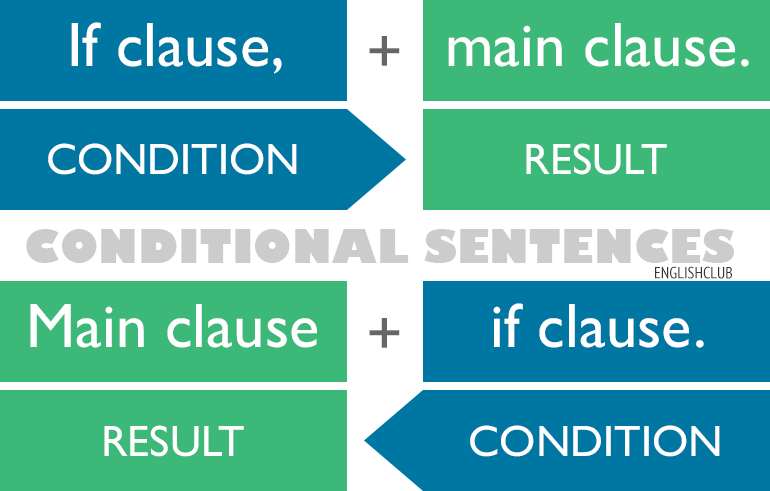CONDITIONAL SENTENCES
ZERO CONDITIONAL or DUMMY Conditional, DAH!!! It is sooooo Obvious!!!
We use the ZERO CONDITIONAL to express: FACTS, RULES or 100% TRUE.
Examples:
- If you heat ice, it melts. OR Ice melts if you heat it.
- If you stand in the rain, you get wet. OR You get wet if you stand in the rain.
- If you freeze water, it turns into ice. OR Water turns into ice if you freeze it.
- If you put oil into water, it floats. OR Oil floats if you put it into water.
Practice doing these activities:
Activity 4
FIRST CONDITIONAL or Mommies conditional
Practice doing these activities:
Activity 1
Activity 2
Activity 3
Activity 4
Activity 5
Game 1
Game 2
Practise doing these activities:
If I had studied harder, I would have passed the exam.
If he had worked well, he would have gone to the party.
If they team had played well, they would have won the match.
Practise doing these activities:
Excercise 1
Excercise 2
Excercise 3
Game 1
FIRST CONDITIONAL or Mommies conditional
(mommies use it all the time!!!)
The first conditional has the present simple after 'if', then the future simple in the other clause:
If + present simple, ... will + infinitive
We use the FIRST CONDITIONAL to talk about things which might happen in the future, real possibilities, which could easily come true.
- If it rains, I won't go to the park.
- If I study today, I'll go to the party tonight.
- If I have enough money, I'll buy some new shoes.
- She'll be late if the train is delayed.
- She'll miss the bus if she doesn't leave soon.
- If I see her, I'll tell her.
Practice doing these activities:
Activity 1
Activity 2
Activity 3
Activity 4
Activity 5
Game 1
Game 2
SECOND CONDITIONAL
The second conditional uses the past simple after "if", then "would" and the infinitive:
- if + past simple, ...would + infinitive
(We can use 'were' instead of 'was' with 'I' and 'he/she/it'. This is mostly done in formal writing).
It has two uses.
First, we can use it to talk about things in the future that are probably not going to be true. Maybe I'm imagining some dream for example.
First, we can use it to talk about things in the future that are probably not going to be true. Maybe I'm imagining some dream for example.
- If I won the lottery, I would buy a big house.(I probably won't win the lottery)
- If I met the Queen of England, I would say hello.
- She would travel all over the world if she were rich.
- She would pass the exam if she ever studied.(She never studies, so this won't happen)
Second, we can use it to talk about something in the present which is impossible, because it's not true. Is that clear? Have a look at the examples:
- If I had his number, I would call him. (I don't have his number now, so it's impossible for me to call him).
- If I were you, I wouldn't go out with that man.
THIRD CONDITONAL OR "chorizo" CONDITIONAL (since is the longest)
The third conditional uses the PAST PERFECT after the "if" sentence or clause and then WOULD HAVE + past participle, on the other sentence or clause.
if + past perfect, would have + past participle
We use the third conditional to talk about things that didn't happen in the past and their imaginary results
If I had studied harder, I would have passed the exam.
If he had worked well, he would have gone to the party.
If they team had played well, they would have won the match.
Excercise 1
Excercise 2
Excercise 3
Game 1




Comments
Post a Comment